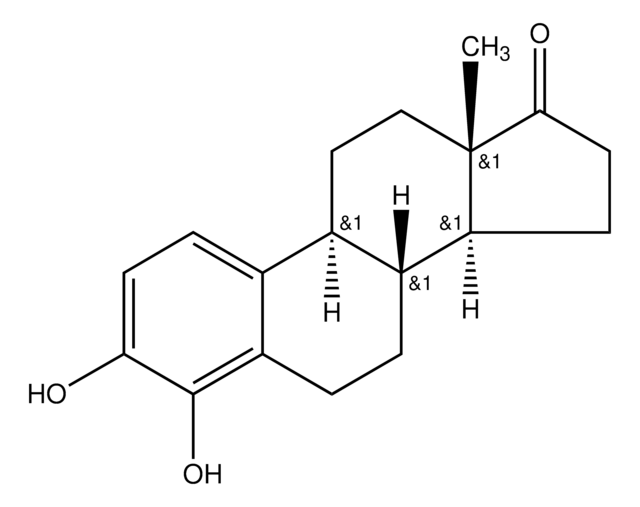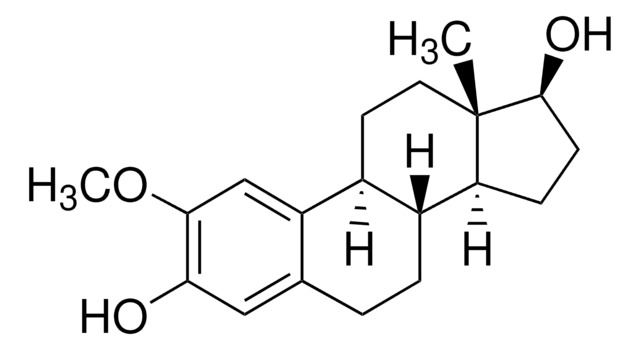H4637
4-Hydroxyestradiol
Sinónimos:
1,3,5(10)-Estratriene-3,4,17β-triol
About This Item
Productos recomendados
storage temp.
−20°C
Quality Level
SMILES string
[H][C@]12CC[C@]3(C)[C@@H](O)CC[C@@]3([H])[C@]1([H])CCc4c(O)c(O)ccc24
InChI
1S/C18H24O3/c1-18-9-8-11-10-4-6-15(19)17(21)13(10)3-2-12(11)14(18)5-7-16(18)20/h4,6,11-12,14,16,19-21H,2-3,5,7-9H2,1H3/t11-,12-,14+,16+,18+/m1/s1
InChI key
QOZFCKXEVSGWGS-ZHIYBZGJSA-N
Gene Information
human ... ESR1(2099)
rat ... Ar(24208)
¿Está buscando productos similares? Visita Guía de comparación de productos
Biochem/physiol Actions
signalword
Warning
hcodes
Hazard Classifications
Carc. 2
Storage Class
11 - Combustible Solids
wgk_germany
WGK 3
ppe
Eyeshields, Gloves, type P3 (EN 143) respirator cartridges
Certificados de análisis (COA)
Busque Certificados de análisis (COA) introduciendo el número de lote del producto. Los números de lote se encuentran en la etiqueta del producto después de las palabras «Lot» o «Batch»
¿Ya tiene este producto?
Encuentre la documentación para los productos que ha comprado recientemente en la Biblioteca de documentos.
Nuestro equipo de científicos tiene experiencia en todas las áreas de investigación: Ciencias de la vida, Ciencia de los materiales, Síntesis química, Cromatografía, Analítica y muchas otras.
Póngase en contacto con el Servicio técnico









